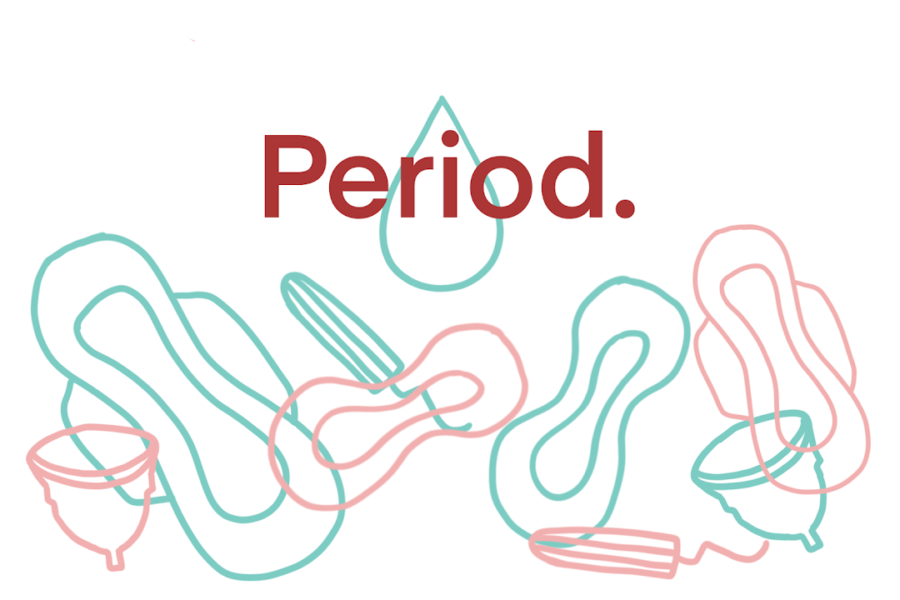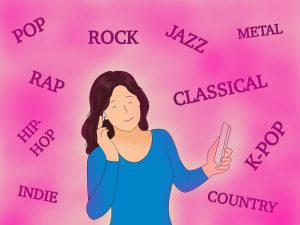EHS Needs More Products. . .
April 19, 2021
The apparent concern regarding the deficiency of period products continues to lurk in the shadows of Edison High School. This matter becomes increasingly consequential, yet few people are inclined to address it. As we celebrate Women’s History Month in March, it is important we also begin to nurture the future women of Edison High School by confronting their legitimate and practical problems.
The reality is that while female students are on their period— menstruating heavily and cramping during classes—the last thing they should need to worry about is the disposal of their pads or tampons, lack of easy access to menstrual hygiene products, or feelings of lagging motivation and shame. This is a very real problem that can lead to a decrease in school performance and the augmentation of a social stigma around a very natural part of female life.
Period poverty is the lack of access to sanitary products, menstrual hygiene education, toilets, handwashing facilities, and/or waste management. This lack of products makes it harder for students to be comfortable while on their periods, a natural occurrence in females. A lack of these products is evident in the bathroom, making it difficult to access products when in an emergency or accidental situations.
In previous years at Edison High School, dispensers could be found in bathrooms, carrying pads and tampons. However, these products are not ideal or accommodating for the variety of females in EHS. They cost between ten to twenty-five cents each and come only as pads of the thin type. They were taken away due to misuse and mistreatment as just a few students would stick pads on the walls or throw tampons on floors.
“That 10% of students make 90% of the problem,” said Ms. Carolyn McElwain, a health teacher at Edison High School, as she recalls these incidents. So, while female students might encourage Edison High School to bring back the dispensers for free use, they also call upon the women of EHS to be aware and respectful of our fellow females and their needs. Only when we empower and respect each other will we be able to achieve this goal for the female body of Edison High School.
While there are pads in the nurse’s office, they are not adaptable for every woman. We must acknowledge that women are most definitely not all comfortable using the same period products.
“I think that a majority of female students, myself included, don’t feel comfortable using period products provided by the school because often the products provided don’t accommodate all body types and concerns. Secondly, school-issued sanitary products tend to be low quality and can cause vaginal or urinary infections,” said Masumi Chhabria ‘23. We also have to take into account the demand for period products at school. Nurses can only provide so many products, and to get to these products, students have to go out of their way to the nurse’s office. Not only does this decrease a students’ time and focus in class, but it becomes a hindrance in the case of emergency situations. Having pad dispensers in bathrooms increases access and comfortability in being able to easily address a situation.
Normalizing the Necessity:
From adolescence, it seems to have become an unspoken rule to keep the monthly menstrual cycle a secret. From the quiet second-grade assemblies on puberty to a lack of easy access to necessary products, this inability to address common scenarios has led to the dearth of period products in Edison High School.
“Periods and period products are associated with ‘uncleanliness’ and ‘impurity’ and girls feel uncomfortable talking about periods with males or adults. It’s important for girls to understand that they should not feel ashamed of buying or using period products,” said Ishani Kunadharaju ‘23. As we continue to de-prioritize the needs of female students, we continue to feed into a cultural stigma around menstruation, causing embarrassment and feelings of self-consciousness.
The appalling social stigma attached to the shame and stress of having to walk down to the nurse’s office or whisper to a friend for a tampon plus the appalling pink tax or tampon tax imposed on any female who menstruates leads to the large discrepancy of students who cannot afford such hygiene products and is an obvious cry for help.
“Menstruation is still seen as shameful and dirty. This leaves many girls unprepared and uneducated. Some people don’t even know or acknowledge ‘period poverty’ as a real/valid thing,” said McElwain.
Undoubtedly, the time has come for us to rise above these obstacles, starting with fulfilling a woman’s menstrual needs and reshaping humiliation into acceptance.
Student Performance and Attendance:
The nuisance of walking to the nurse to obtain a free pad on a random, unfortunate day of school, or having to rush to your locker, only to hide a pad in your sleeves is far more impactful on a school day than one may think. Without having that easy access, or those free of charge dispensers in schools, female students become reluctant to show up to classes. It is especially important to consider that some students cannot afford to procure menstrual hygiene products themselves and the best way to avoid accidents that may very well happen is to simply not show up to school. Lastly, the conversation around periods is generally negative, with embarrassment often clouding womens’ minds.
Mrs. McElwain described the situation as taboo. “If it’s taboo, you don’t want to come to school because accidents may happen and it feels shameful and dirty,” McElwain said. She goes on to explain that the issue is not only in pads but the fact that an abundance of EHS female students have painful cramps. Considering the nurse cannot provide pads for every student during every school period, they most certainly cannot provide period relievers. As a result, classes like physical education that include running a mile while menstruating deter female students.
Taking a step to reinstate dispensers and provide free period products will decrease the social stigma around this conversation, encourage female students to feel protected and ensured to come to school, and most importantly, comfort students throughout the class in order to perform the best they can. At Edison High School, we can at least try to play a small part in a large cause that affects about fifty percent of our students.
From Period Poverty to Uncleanliness:
The lack of cleanliness that comes with the shortage of accessible resources affects hygiene. If schools do not provide products for women who simply cannot afford to set aside money for sanitary products, girls will find themselves in a tough situation where they are unaware of how or if they can take care of themselves. Put directly, the better the sanitary care, the better health education we can spread to young girls.
Recently, some state legislatures, including California, Illinois, and a few more have introduced bills that require their public schools to supply free menstrual products in bathrooms. So, why not New Jersey? Why not start in Edison High School? Menstruation products are a necessity. It is a fact, a fact we can no longer shy away from. Affordability for a necessity cannot become a problem that carries over in a school environment like Edison High, a school that stands as a second home for establishing habits and ideas.
Edison High School can play a key role in moving forward the elimination of negativity around menstruation by offering free period products. This act would send a strong message of acknowledgment to female students that a natural process like periods should not be a reason for embarrassment. Additionally, it is a worthwhile means of considering a woman’s awkwardness and struggles of menstruating monthly.
























































































